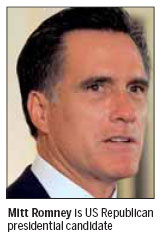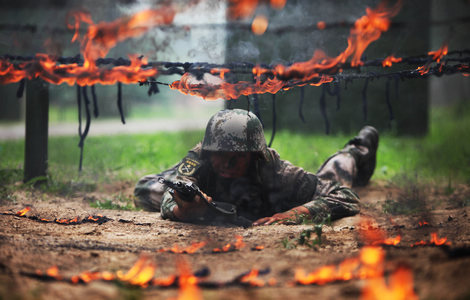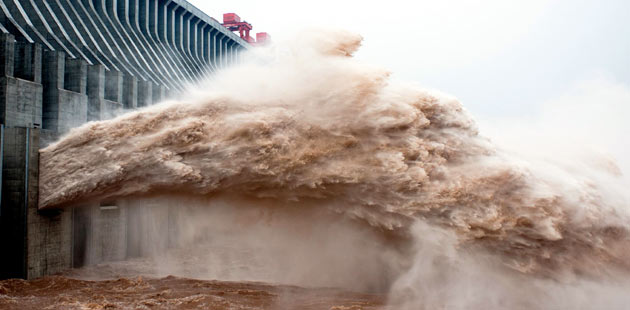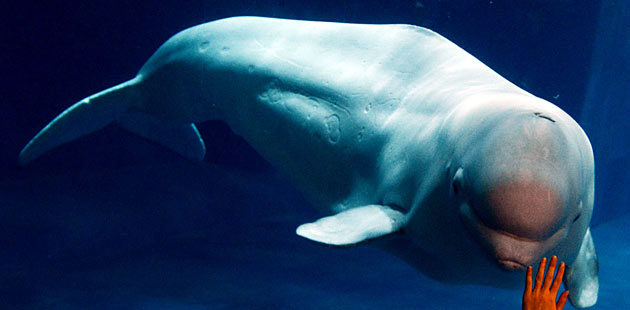Improved Taiwan arms deal mooted
Updated: 2012-08-29 10:53
By Tan Yingzi in Tampa (China Daily)
|
||||||||

A Romney administration may consider providing more advanced weapons to Taiwan to maintain strong US military capabilities in the Asia-Pacific region, a senior foreign policy adviser to the Republican presidential candidate said on Tuesday.
"When President Obama refused to sell F-16C/D (jet fighters) to Taiwan, Governor Romney was very clear to state that he disagrees with that decision," said Richard Williamson at a foreign policy panel hosted by the International Republican Institute on the sidelines of the Republican National Convention.
The 63-year-old Williamson has served on foreign affairs for three Republican presidents. Currently, he is a partner at a Chicago-based law firm. Williamson also serves as vice-chairman of the International Republican Institute, of which Senator John McCain is the chairman.
Mitt Romney's China policy statement says the Department of Defense under his administration should "reconsider recent decisions not to sell top-of-the-line equipment to our closest Asian allies. We should be coordinating with Taiwan to determine its military needs and supplying them with adequate aircraft and other military platforms".
In the 2012 Republican policy platform released on Tuesday, which sees little difference from the previous one regarding foreign policies, the party supports both sides of the Taiwan Straits to solve the question peacefully, and praises the steps taken to reduce tension and strengthen economic ties.
Last fall, despite several requests from Taipei and pressure from Congress, the Obama administration again refused sales of the advanced F-16 C/D fighter jets requested by Taiwan, but sold a $5.85 billion arms package, including fitting 145 of Taiwan's F-16A/B fighter jets with advanced radar and weapons, a five-year extension of F-16 pilot training at Luke Air Force Base, and aircraft spare parts.
Beijing has always strongly opposed arms sales to Taiwan, which is "the most important and most sensitive core issue" in China-US relations, according to the Chinese foreign ministry.
The Taiwan question concerns China's sovereignty and territory integrity and violates the three Sino-US joint communiques, in particular the principles enshrined in the August 17 Communique signed in 1982.
It states that the US will not carry out a long-term policy of arms sales to Taiwan and intends to gradually reduce arms sales till the question is finally resolved.
As some US analysts pointed out, Romney's strategies on China look very similar to President Barack Obama's, despite a tougher tone, but the stance on Taiwan issue is an exception.
David Shambaugh, professor of political science and international affairs and director of the China Policy Program at the George Washington University, said that those campaign assertions often fall by the wayside after a candidate takes over at the White House.
"Much of it is tough talk, not dissimilar from the election-year rhetoric of George W. Bush in 2000," he wrote in the article What is Romney's China Policy?
"But, when taken together with the Obama administration's pivot to Asia, which is primarily motivated by the strategic uncertainties associated with the rise of China, relations between China and the United States could be headed into contentious waters in the years ahead."
tanyingzi@chinadailyusa.com










